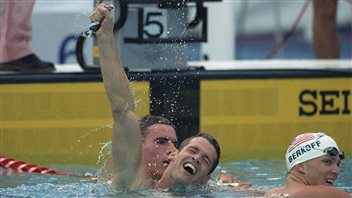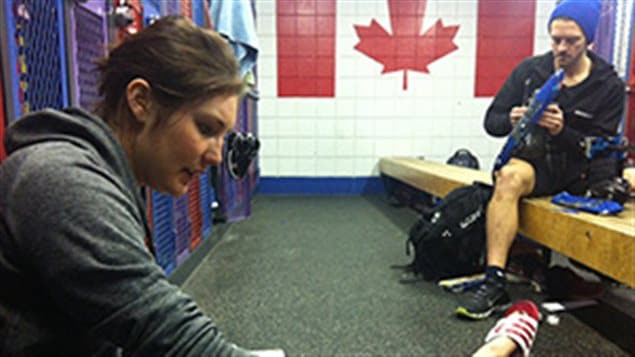Controversy raged leading up to the 2014 Winter Olympics when host country Russia passed an anti-gay law banning the “propaganda of non-traditional sexual relations to minors.” Athletes felt pressured to boycott the games, take a stand on the law, or to come out if they were gay.
A new documentary called To Russia With Love promises a “look at the intersection of athletes and activist in Sochi during the Games, and a behind-the-scenes look at the Russian Open Games,” an LGBT sports tournament held in Moscow right after the Olympic Games.
‘A dark cloud over the Olympics’
The controversy “was a double-edged sword,” says Mark Tewksbury, an Olympic gold medallist for Canada, and an advocate for LGBT rights. “On one hand it was really important that the world became more aware of countries like Russia where LGBT people are persecuted and robbed of their human rights. On the other hand, it obviously put a really dark cloud over the Olympics coming up in Sochi.”
It was difficult for athletes to wrestle with the issues and at the same time focus on giving their best performance, says Tewksbury. “I was rather surprised that no single athlete made any kind of gesture with a rainbow flag or some gesture that would cause the IOC (International Olympic Committee) to really have to look at its position.
Listen
Athletes, activists faced ‘a brutal reality’
“I was surprised that the LGBT community in Russia didn’t gather and stage a huge protest while the world’s attention was there. But I think it speaks to the brutal reality of either of those situations—either perhaps getting kicked out of the Olympics or facing brutality by the police.”
‘A lot of change in sports’
There has been a lot of change in sports since Sochi, says Tewskbury. The most important in his view, was the IOC’s decision to change its charter, something that was highly unusual. The committee changed principle nine, a non-discrimination clause, to explicitly include sexual orientation.
“That’s a big step,” he says. “It’s sort of taking the moral high ground. It might be difficult to enforce, but I think it’s important that the body that governs most amateur sport in the world at least acknowledges this issue.”







For reasons beyond our control, and for an undetermined period of time, our comment section is now closed. However, our social networks remain open to your contributions.